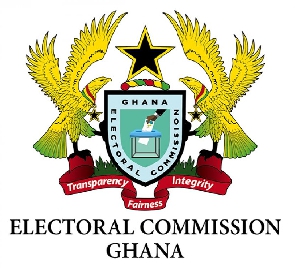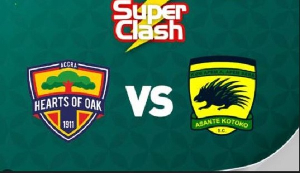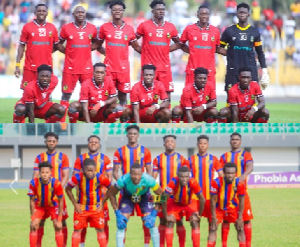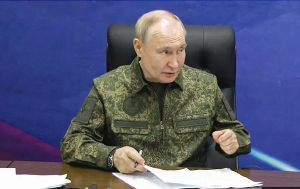As the long-awaited District Assembly Elections in Ghana take place next Tuesday, December 19, in recent weeks the airwaves have been awash with toe-tapping jingles in English as well as in the major Ghanaian languages cajoling: “Get involved! Your vote is your future!”
Indeed, so catchy are the tunes, courtesy of the Electoral Commission and the National Commission for Civic Education (NCCE), that we should all be dancing from home to our polling station. Furthermore, evidently, both institutions are ready, and so the candidates, too, must be ready for the D-Day – originally scheduled for October 3.
For the District Assembly or District Level Elections (DLE), there is a total of 6,215 electoral areas. Each electoral area is to be represented by one assembly member and five members for the unit committees. Electoral Commission figures quoted by the Daily Graphic indicate that the contestants are made up of 18,755 assembly candidates and 47,502 unit committee candidates, bringing the number to 66,257 candidates.
Well, I, too, as a registered patriotic and responsible citizen am ready and willing to go and cast my votes for them, especially women contestants.
But there is just one obstacle, a major one in my view: who do I vote for? Because, unfortunately, I don’t know the aspirants for my area!
Why should I take the trouble of going to my polling station or voting place, even if there will be no queue, when I don’t know any of the contestants? I have never seen, much less heard from any of them! None of them has rung my gate bell to introduce themselves and ask for my vote, or dropped a flyer with basic info about them and what office they are contesting.
The nearest I have come to know them is one or two handbills pasted on a pole near my house and on a kiosk. As to who the advertised aspirants are in the flesh, or their aims and objectives, or why they want to be voted for, and why they are the best to represent our area, I have no idea.
Not even one name is known to me! I wonder if the contestants care that there are people like me, constituents, who don’t even know their names.
Apparently not! How then do I go and vote on Tuesday? Do any of them want my vote? How do I go and vote for a name I can’t link to a face? Why should I vote someone to represent me when I have no idea what that candidate’s vision is or their competence?
And it can’t be the duty of constituents to go looking for possible contestants and interview them to know their vision and programme!
So I guess I can count myself among the unacceptably high, and growing, numbers of disappointed and discouraged would-be voters as far as DLE is concerned. And certainly, I can’t be the only one, judging by the responses I got from a random sample of people this week.
The following are responses to my two questions: Will you be voting on Tuesday? Do you know the District Assembly candidates in your area?
1.“None of the above, please. I have never voted in any DA polls.”
2.“Truly, no; no. But for you, I wouldn’t have remembered.”
3.“Nobody has approached me. I have not even come across anyone’s poster. It was so last four years. I am not going to vote.”
4.“I’m not sure. One of them came around with the incumbent Assemblyman who introduced the new one. I really don’t know his capabilities or anything about him, so I wonder if I’ll vote.”
5.“Yes, I hope to vote. But no, I don’t really know the candidates. I was thinking about this last week. Will be enlightening myself over the weekend.”
Only a few, in different parts of the country, were able to answer ‘yes’.
The Graphic of December 14, 2023, reported the plea of the NCCE) for eligible Ghanaians to go out in their numbers and vote.
“NCCE Chairperson Kathleen Addy said Ghanaians must take a keen interest in the elections because assembly members play a crucial role towards ensuring effective governance at the Metropolitan, Municipal, and District Assemblies (MMDAs).
“The DLE is meant to elect assembly members and unit committee members at designated electoral areas at MMDAs, as spelt out in the Local Government Act, 1993 (Act 462), which provides for the election of assembly members to MMDAs.
“Elections to a district assembly shall be held once every four years, at least six months before or after a general election of Members of Parliament."
“The assembly members are to serve as the representatives of the communities while the unit committee members also help in mobilisation at the community level.”
However, “over the years, the DLE has been characterised by low patronage, with a national average turnout of 30 percent.
“Ms Addy described the low turnout as “worrying and unacceptable. Members of Parliament live and work in Accra; the President's office is in Accra; but the assembly and unit committee members live with us in the community and help to address our daily development challenges."
She said as part of measures to whip up interest in the DLE, the NCCE had deployed its 1,700 staff to all parts of the country to sensitise people to the need to participate in the elections.
Furthermore, the Commission has produced jingles in 17 different Ghanaian languages to help create awareness. Also, the NCCE has been collaborating with the EE and other stakeholders to mount platforms for candidates contesting the elections to present their manifesto to the voters, the paper reported.
All the information about the DLE highlights the disturbingly low turnout, and from my experience and my random survey responses, is it any surprise?
To me, the lack of interaction between aspirants and prospective voters must be a major factor. It’s likely that even the 30 percent turnout being quoted has been achieved mostly through the participation of the family, friends, and acquaintances of candidates.
It appears that not enough attention is being paid to the need for DLE candidates to know as many constituents as possible, and present their manifesto to them. The nature of the criticisms indicates the strong need for many more, continuing platforms to be created ahead of every Assembly election.
If political party candidates are more successful in national elections, surely it’s because of the effort they put in to make candidates known to the electors: the sustained, massive publicity, backed in some cases by house-to-house and even office-to-office visits by aspirants.
Again, notably the time of writing this, on the eve of DLE 2023, none of the aspirants in my area has bothered to ensure that I know them and what they stand for, therefore certainly they can’t count on my vote!
Much as I wish to do my patriotic duty, I don’t know the aspirants! Sadly, the evidence is that there are countless people like me.
Simply put, the aspirants need to be reminded, at this eleventh hour, that even a single vote can mean the difference between sorrow and ecstasy when the election results are announced.
ajoayeboahafari@yahoo.com
Opinions of Saturday, 16 December 2023
Columnist: Ajoa Yeboah-Afari















